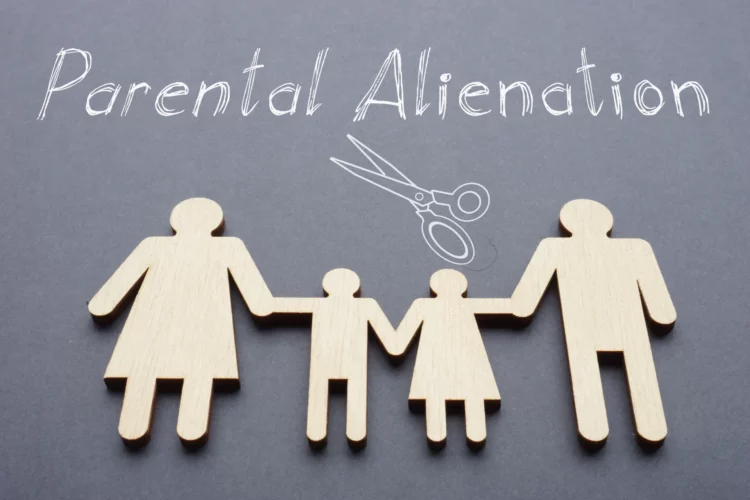Parental alienation is a distressing phenomenon that occurs when one parent manipulates their child against the other parent, often due to divorce or separation. This issue strains the relationship between the targeted parent and their child and has lasting psychological consequences for everyone involved. As society continues to recognize the prevalence of parental alienation and its negative impact on families, it is crucial to explore effective methods to combat this issue and foster healthy relationships within families.
Understanding and addressing parental alienation requires a multifaceted approach that includes educating parents on the warning signs, focusing on the children’s best interests, and seeking professional help when necessary. Legal reform and therapeutic interventions also play a vital role in mitigating this issue. By addressing the underlying issues that contribute to parental alienation, parents can work towards repairing damaged relationships and promoting the well-being of their children.
Key Takeaways
- Educating parents on warning signs of parental alienation helps prevent and address the issue
- Legal reform and therapeutic interventions play vital roles in mitigating the effects
- Focusing on the best interests of children and promoting their well-being is essential
Understanding Parental Alienation
Parental alienation is a form of psychological abuse that occurs when one parent, the alienating parent, manipulates a child’s emotions to turn them against the other targeted parent. This manipulation often involves making false or exaggerated claims about the targeted parent to create a wedge between them and the child.
The targeted parent experiences significant emotional trauma as they struggle to maintain a healthy relationship with their child. This, in turn, harms the child, who is manipulated into believing that the targeted parent is abusive or dangerous, further exacerbating the problem and damaging the parent-child relationship.
Certain factors make some parents more susceptible to becoming alienators, such as a prevalence of narcissism. In cases of Narcissistic Parental Alienation, the alienating parent exhibits extreme self-centeredness and a lack of empathy for both their child and the targeted parent. This further compounds the emotional impact on all parties involved.
It is important to recognize the warning signs of parental alienation and take steps to prevent or mitigate its harmful effects. Early intervention strategies include open communication with the child, seeking professional help, and in severe cases, pursuing legal actions to protect the child’s best interests.
Overall, understanding parental alienation and its underlying factors is crucial for professionals and family members to support the targeted parent and the child and work towards building healthier, more stable family dynamics.
Effects on the Targeted Parent
Parental alienation can have severe and long-lasting effects on the targeted parent. The process often involves manipulation, lies, and actions designed to create fear and insecurity in the targeted parent. This can lead to isolation, depression, and a lack of emotional support from close friends and family members.
One of the most significant consequences of parental alienation is the loss of a meaningful relationship with the child. Over time, the targeted parent may struggle to communicate effectively with their child, causing further emotional distress. The targeted parent may also be faced with alienating behaviors from their child, such as hostility, rejection, or indifference, due to the false information and lies they have been exposed to.
The targeted parent’s emotional well-being can be significantly impacted by the constant fear and uncertainty caused by this manipulation. For many, the fear of losing their child can become a consuming reality. This fear can manifest as anxiety and lead to symptoms of depression, negatively affecting both their physical and mental health.
Losing the emotional support and empathy of friends and family members can exacerbate the targeted parent’s feelings of isolation and despair. These support networks often provide crucial reassurance and comfort during times of crisis. When these relationships are eroded through manipulation, the targeted parent may feel increasingly alone and misunderstood.
In summary, parental alienation can have far-reaching and devastating effects on the targeted parent. The loss of a strong relationship with their child, fear, emotional distress, and a lack of support from friends and family members all negatively impact their overall well-being. Targeted parents must recognize the signs of parental alienation and seek professional help to address these issues and work towards rebuilding their relationships with their children.
Impact on Children
Parental alienation has a significant and lasting impact on children. During the experience, children often undergo a range of negative emotions, including fear, sadness, and confusion. One parent, who is endeavoring to turn them against the other, may manipulate them. This manipulation can change the child’s behavior and emotional stability.
The fear induced in the child results from being caught between the alienating parent’s demands and the love for the other parent. They may feel anxiety when trying to meet the expectations of the alienating parent or guilt in showing affection towards the targeted parent. This fear can manifest in behavioral issues as the child struggles to cope with their emotions.
Children affected by parental alienation may also experience long-term trauma. The emotional turmoil they face during this time can have lasting effects, with some individuals in adult life who continue to struggle with trust and relationship issues. These difficulties stem from the manipulation they endured and the lack of a nurturing and supportive environment in which to grow and develop.
As children develop, their behavioral and emotional milestones heavily rely on the support and guidance of their parents. The manipulation involved in parental alienation robs them of this essential foundation. It is crucial to identify and address this form of psychological abuse as early as possible to minimize its negative impact on children and help them regain a sense of stability, trust, and emotional well-being.
Coping Strategies for Targeted Parents
Targeted parents often face overwhelming emotions and challenges when dealing with parental alienation. Developing healthy coping strategies to promote healing and maintain a strong connection with their children is crucial.
One key component in overcoming parental alienation is consistently expressing love toward the affected children. This reassurance helps to strengthen the bond between the targeted parent and their child. Genuine affection and emotional support can mitigate the negative influences of the alienating parent.
Active listening is crucial in understanding the child’s feelings and experiences. Targeted parents should remain open and non-judgmental, allowing their children to freely share their thoughts and emotions. Demonstrating empathy and patience helps to create a safe space for open communication.
Working on personal self-esteem is essential for the targeted parent as well. Engaging in self-care practices and finding a support network can contribute to an improved sense of self-worth. This may involve seeking professional counseling, joining a support group, or engaging in physical and mental wellness activities.
Overall, the emotional well-being of the targeted parent is crucial to combating parental alienation. By nurturing a healthy self-image and maintaining open communication with their children, targeted parents can foster the resilience needed to overcome this challenging situation.
Legal Aspects and Remedies
Parental alienation can be a significant issue during a custody battle. Understanding the legal aspects and remedies available to help combat this problem.
One of the primary legal aspects to consider is custody. Courts typically weigh factors such as the child’s best interests and the child’s preference when determining custody arrangements. If a judge believes parental alienation occurs, they may adjust the custody agreement to protect the child’s interests.
Sometimes, the court may determine that a therapist is necessary to help rebuild the relationship between the alienated parent and the child. Therapy can address the emotional trauma caused by alienation and provide a safe space for the child to express their feelings.
Moreover, lawyers play a critical role in parental alienation cases. A knowledgeable attorney can help a client gather evidence and present their case in court, demonstrating the other parent’s harmful actions and effects on the child. This evidence can sway the court’s decision to favor the alienated parent.
Additionally, the court may implement measures such as supervised visitation, fines, or even change of custody to address the issue. The alienated parent needs to stay proactive, involved, and knowledgeable about their rights to mitigate the effects of parental alienation on their relationship with their child.
Therapeutic Interventions
Therapeutic interventions play a vital role in addressing parental alienation. Mental health professionals are equipped with the necessary skills and knowledge to help families work through the challenges associated with this issue.
Reunification therapy serves as a key intervention strategy in these cases. This therapy aims to repair the bond between the alienated parent and the child by addressing the misconceptions, negative beliefs, and behaviors that led to the alienation. During the therapy sessions, the therapist creates a safe and neutral environment for the parent and child to communicate openly and honestly.
In addition to reunification therapy, individual therapy benefits the alienated parent and the child. For the alienated parent, therapy can help them understand the factors that contributed to the alienation and develop strategies for coping with the emotional impact of being separated from their child. Individual therapy can provide a space for the child to express their thoughts and emotions surrounding the parental conflict and work on healing from any perceived or real harm they have experienced.
Mental health professionals involved in these cases need to know the dynamics of parental alienation, as this will guide their therapeutic approach. The therapist must remain neutral, as taking sides can exacerbate the alienation.
Overall, therapeutic interventions are crucial in addressing parental alienation. Through reunification therapy, individual therapy, and the support of mental health professionals, healing can be achieved, and relationships can be restored.
Prevention of Parental Alienation
Preventing parental alienation requires a proactive approach from all adults involved in a child’s life. The first step is to raise awareness and develop insight into the issue. Adults should educate themselves on the signs, dynamics, and potential consequences of parental alienation.
Shared parenting plays a pivotal role in combating parental alienation. A balanced and fair parenting schedule ensures that both parents can access the child and participate in their upbringing. It also helps to reduce the chances of one parent bad-mouthing or undermining the other.
Emotional regulation is another important aspect of prevention. Adults should be mindful of their emotions, especially during conflict or disagreement. Avoiding the expression of negative emotions in front of the child can go a long way in fostering a healthy relationship with both parents.
Open communication between the parents is essential to prevent parental alienation. Even when separated or divorced, parents should try to discuss issues related to the child’s well-being. This cooperation can serve as a model for the child, demonstrating how to handle disagreements and solve problems maturely.
Parents should also avoid the tendency to label or blame the other party. Instead, they should focus on the child’s needs and create a safe and nurturing environment. Encouraging the child to openly express their thoughts and feelings about the situation, without judgment, can help them feel supported and loved by both parents.
In addition, it is crucial to involve other supportive adults in the child’s life, such as teachers, counselors, or family members. These individuals can play a valuable role in helping the child navigate any challenges due to parental alienation.
In summary, preventing parental alienation depends on awareness, shared parenting, emotional regulation, open communication, and the involvement of supportive adults. Proactively addressing these factors makes it possible to create a healthy environment for the child and foster positive relationships between them and their parents.
Frequently Asked Questions
What are the most effective strategies for combating parental alienation?
There are several effective strategies for combating parental alienation. These include:
- Open communication: Maintain a consistent and healthy dialogue with the child. Encourage honest discussions about their feelings and concerns.
- Rebuilding trust: Work on building a strong relationship with the child through shared activities and time.
- Avoid negative talk: Refrain from speaking negatively about the other parent in front of the child.
- Professional help: Seek the assistance of mental health professionals or family therapists when necessary.
Can legal actions help address parental alienation?
Legal actions can help address parental alienation in some cases. Documentation of instances of alienation, obtaining a court-ordered parental responsibility evaluation, or pursuing a custody modification may be effective steps. However, consulting with a family law attorney is essential to determine the best course of action.
How can mental health professionals assist in addressing parental alienation?
Mental health professionals, such as therapists and counselors, can provide valuable insights and support in addressing parental alienation. They can help manage the emotional impact of alienation on both the child and the targeted parent, and they can offer guidance on communication strategies, trust-building, and maintaining healthy relationships.
What are the common signs of parental alienation syndrome?
Common signs of parental alienation syndrome include:
- A sudden change in the child’s attitude or behavior towards the targeted parent
- The child expressing unfounded or exaggerated negative beliefs about the parent
- Resistance or refusal to spend time with the targeted parent
- Negative reaction when discussing the targeted parent or the situation
How can communication with the alienated child be maintained?
Maintaining communication with an alienated child is crucial. Some helpful strategies include:
- Establishing a regular communication method, like phone calls, video chats, or text messages
- Showing genuine interest in the child’s life, activities, and feelings
- Being consistent in communication even when the child might be reluctant or unresponsive
- Avoiding discussions about the alienation itself or criticizing the other parent during communication
What resources are available for support and guidance in parental alienation cases?
Several resources can provide support and guidance:
- Mental health professionals, such as therapists and counselors, can offer guidance and help develop coping strategies
- Legal professionals, such as family law attorneys, can provide advice on navigating the legal system
- Support groups, online forums, and organizations, such as the Parental Alienation Awareness Organization (PAAO), can offer a network for sharing experiences and advice










